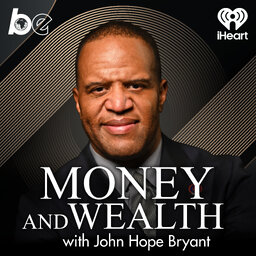The Hidden Power of Life Insurance
In this episode of Money & Wealth, John discusses how an affordable life insurance policy can lead to dignity and generational wealth.
In 1 playlist(s)
Money & Wealth With John Hope Bryant
John Hope Bryant- successful entrepreneur, executive and philanthropist –will dispense his trademark…Social links
Follow podcast
Recent clips

REPLAY: When Smart People Fail
1:06:23

Turning No Into a Lease
12:17

Built for the Storm: How to Protect, Survive & Thrive in Uncertain Times
54:29
 Money & Wealth With John Hope Bryant
Money & Wealth With John Hope Bryant